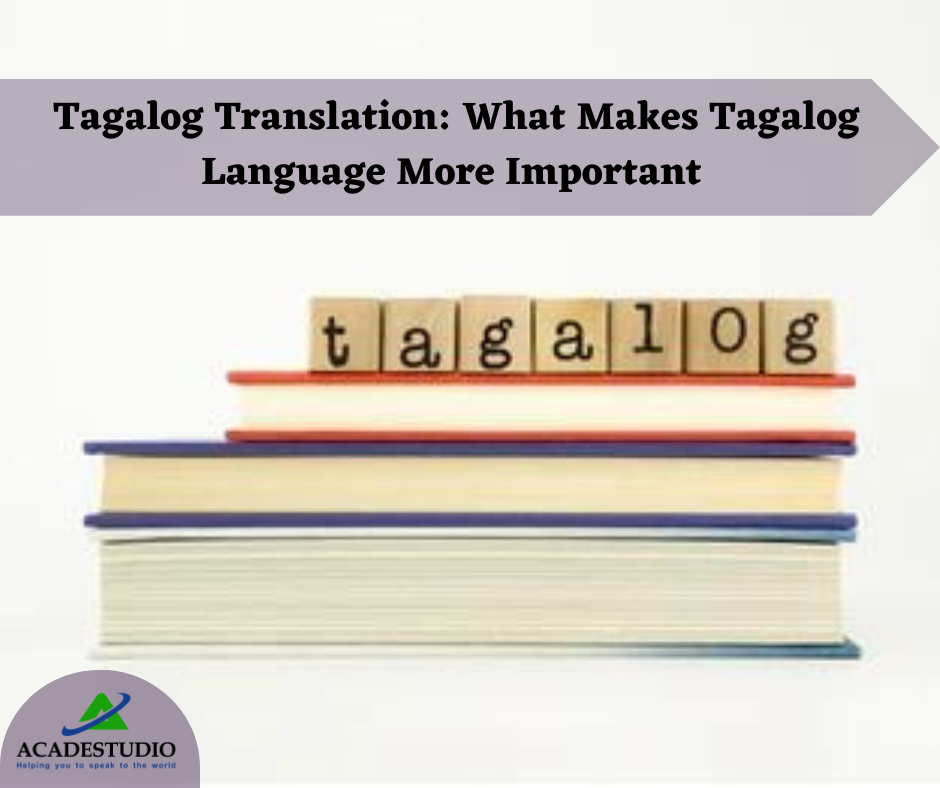Tagalog Translation: What Makes Tagalog Language More Important
The majority of the content that we see today is written in English. English is a prevalent language in the corporate world. It is interesting to note that only 23% of the world's population speaks English, being the dominant language. Is it not surprising? Yes, it is. The remaining large portion of the world population is non-English speaking people. Ignoring those languages can adversely affect the business prospect if you contemplate exploring the international market. Tagalog is one of them, and Tagalog is the first Filipino language. Tagalog Translation services, at this stage, are the need of the hour.
Overview of Tagalog Language
Statistics reveal that a whopping number(50 million) Tagalog-speaking people reside in Luzon, the largest island Philippines. It is no doubt a widely spoken language, Cebuano and Ilokano. Filipino is the official language of the Philippines. Reaching them requires the Tagalog language.
Even though the Tagalog language comes from the Philippines, it is not limited there; rather, it spreads out across the length and breadth of the globe. A survey reveals that a huge number (Approx 1.59 million) Tagalog speaking people reside in the US.
The very meaning of Tagalog comes from the word “Taga-iLog,” and its meaning is “ from the river.” English and Spanish have a great influence on the Tagalog language. Notwithstanding the said influence, it is considered one of the dynamic and richest languages. Apart from this, the prolonged colonial rule further nourished the Tagalog language.
How Can Tagalog Language Boost Your Business?
Drive Away Simmering Language Barriers
Through the deft handling of Tagalog Language Translator, the difficult language barriers are no longer the bone of contention for the business. It is possible for translation companies because they have a panel of dedicated linguistics and other professionals like Subject Matter Experts, Typesetters, and Graphic designers who have considerable industry experience and expertise in this field.
Once done, it is possible for an organization to effectively communicate with the Tagalog people and communicate the company’s objective. In this way, you can build trust among your target audience, and this move will likely convert your target audience to become your brand’s advocate.
Global Access
Even though English is the dominant language, all most all official communication is performed in English. Audiences prefer to have products and services in their mother tongue. Surprisingly, even though the audience knows English regarding products, they want them in their native language. If you contemplate doing your business overseas, you must cater to the people who do not know English, and you can deliver products and services in their mother tongue. If you understand the need of those non-English speakers, the audience will likely become loyal advocates of your brand. For this reason, English-Tagalog Translation of Words becomes imperative.
Save Money and Time
In the initial stage, the company tries to use individual translators or freelancers for the project. Choosing them may only sometimes be fruitful when handling complicated and large projects with short notice. The reason for not getting a satisfactory result is that they need more expertise and speed from the translation companies.
The translation companies are blessed with several experts ranging from various disciples, and they have adequate experience and expertise in this realm. They can handle complicated projects with confidence.
On the other hand, you cannot expect the same from freelance or individual translators since translation companies allow you considerable time that can help you concentrate on other important official matters. This way, you can save money and time considerably.
It Goes Beyond Translation and Localization
Translation and localization are two very important concepts in the domain of translation. Many people do not know the difference between translation and localization. Generally, from a layman's point of view, translation means word-by-word translation from one language to another, whereas localization means culturally related.
Important factors regarding translation; are cultural sensitivity, social climate, belief, tradition, signs, symbols, and colors. With that, translators should mindfully take care of all these subtle things. For example, there are many similar words and phrases in English, and at the time of translation from one language to another, the meaning of those words is changed dramatically. A professional translator is well-acquainted and delivers accurate content, eliminating miscommunication.
If the organization wants to scale up its business globally, it must accurately cater to the target audience in its native language; deviating may cause disastrous consequences in terms of damaging your organization's reputation. Therefore, a professional Taglish Translator is required.




Comments
Post a Comment